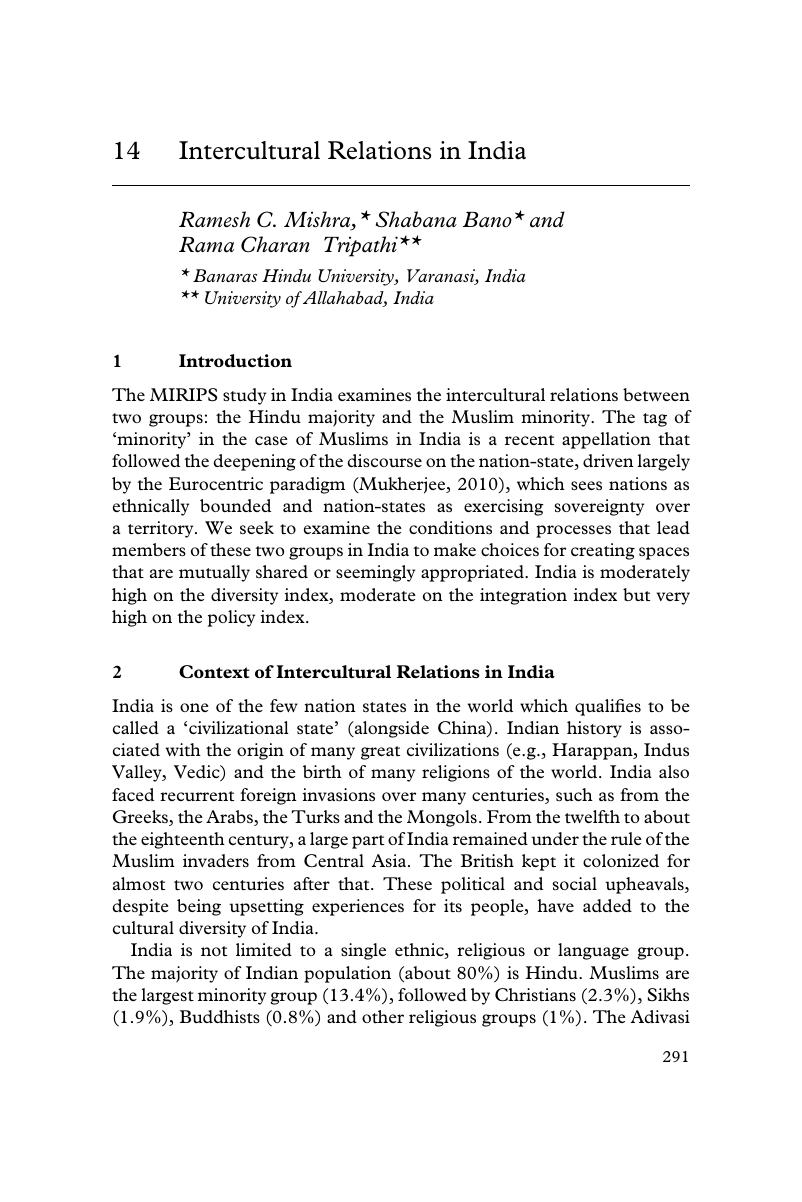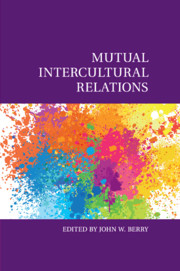Book contents
- Mutual Intercultural Relations
- Culture and Psychology
- Mutual Intercultural Relations
- Copyright page
- Contents
- Figures
- Tables
- Contributors
- Contributor Biographies
- Acknowledgements
- 1 Introduction to Mutual Intercultural Relations
- 2 Intercultural Relations in Russia
- 3 Intercultural Relations in Latvia and Azerbaijan
- 4 Intercultural Relations in Estonia
- 5 Intercultural Relations in Finland
- 6 Intercultural Relations in Norway
- 7 Intercultural Relations in Germany
- 8 Intercultural Relations in Switzerland
- 9 Intercultural Relations in Greece1
- 10 Intercultural Relations in Italy
- 11 Intercultural Relations in Malta
- 12 Intercultural Relations in Portugal
- 13 Intercultural Relations in Spain
- 14 Intercultural Relations in India
- 15 Intercultural Relations in Hong Kong
- 16 Intercultural Relations in Australia
- 17 Intercultural Relations in Canada
- 18 Evaluation of the Hypotheses and Conclusions
- MIRIPS Questionnaire
- Author Index
- Subject Index
- References
14 - Intercultural Relations in India
Published online by Cambridge University Press: 13 October 2017
- Mutual Intercultural Relations
- Culture and Psychology
- Mutual Intercultural Relations
- Copyright page
- Contents
- Figures
- Tables
- Contributors
- Contributor Biographies
- Acknowledgements
- 1 Introduction to Mutual Intercultural Relations
- 2 Intercultural Relations in Russia
- 3 Intercultural Relations in Latvia and Azerbaijan
- 4 Intercultural Relations in Estonia
- 5 Intercultural Relations in Finland
- 6 Intercultural Relations in Norway
- 7 Intercultural Relations in Germany
- 8 Intercultural Relations in Switzerland
- 9 Intercultural Relations in Greece1
- 10 Intercultural Relations in Italy
- 11 Intercultural Relations in Malta
- 12 Intercultural Relations in Portugal
- 13 Intercultural Relations in Spain
- 14 Intercultural Relations in India
- 15 Intercultural Relations in Hong Kong
- 16 Intercultural Relations in Australia
- 17 Intercultural Relations in Canada
- 18 Evaluation of the Hypotheses and Conclusions
- MIRIPS Questionnaire
- Author Index
- Subject Index
- References
Summary

- Type
- Chapter
- Information
- Mutual Intercultural Relations , pp. 268 - 290Publisher: Cambridge University PressPrint publication year: 2017
References
- 2
- Cited by

